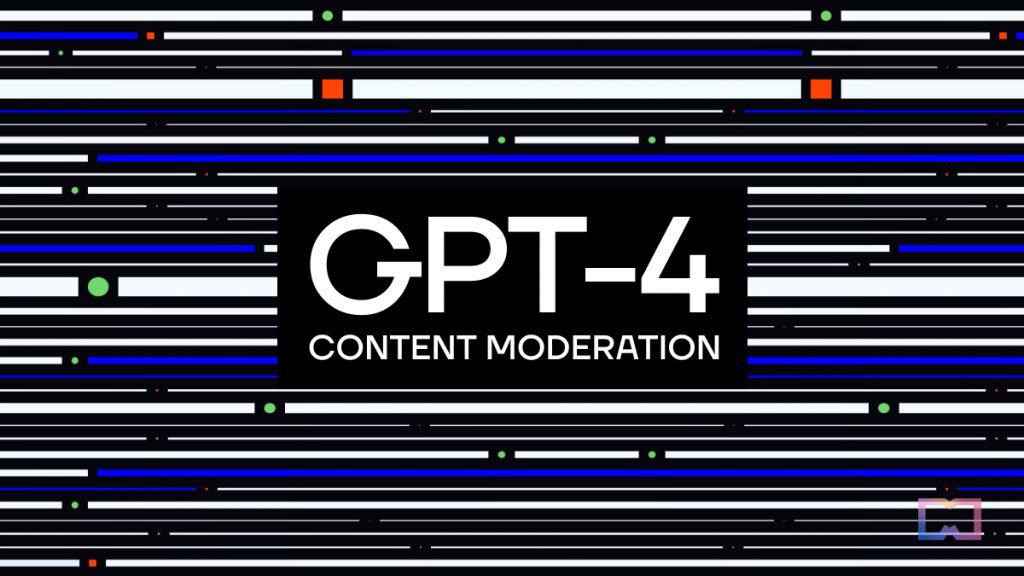OpenAI’s GPT-4 Sets Out to Revolutionize Content Moderation


In Brief
OpenAI claims that GPT-4 has the potential to accelerate content moderation.
The company said that GPT-4 can help companies speed up their process of content moderation, reducing it from months to hours.

OpenAI, the creator of the widely recognized AI-powered chatbot ChatGPT, announced that GPT-4 has the potential to accelerate content moderation. The company shared the research on its blog on August 15.
Content moderation plays a pivotal role for social media platforms like Facebook and Instagram. Presently, these platforms collaborate with numerous global moderators to prevent users from encountering harmful content. However, individuals may grapple with the platforms’ evolving policies and the volume of published content.
To mitigate such growing challenges, Open AI claims that GPT-4 can help companies speed up their process of content moderation, reducing it from months to hours.
In addition, OpenAI’s said that its large language model’s (LLM) ’s ability to interpret complex rules and nuances in extensive content policy documentation enables immediate adaptation to policy updates, leading to uniform labeling across platforms. The company believes that AI can help moderate online traffic according to platform-specific policies.
Different from constitutional AI, which mainly relies on the model’s own internalized judgment of what is safe,OpenAI’s approach aims to aid platform-specific content policy, making iteration faster and less tedious.
OpenAI introduced GPT-4 in March of this year. As of today, it outperforms all existing LLMs, having reached a score of 85.5% in the English language.
OpenAI also announced that it will be enhancing GPT-4’s predictive quality by exploring chain-of-thought reasoning and self-critique. The company aims to detect unknown risks inspired by constitutional AI and update content policies accordingly.
However, the technology also has its limitations. For instance, LLMs are vulnerable to undesired biases that might have occurred during the model training. So, as with any AI application, results and output will need to be carefully monitored, validated, and refined by humans.
“By reducing human involvement in some parts of the moderation process that can be handled by language models, human resources can be more focused on addressing the complex edge cases most needed for policy refinement,” said OpenAI, in the announcement.
Read more:
Disclaimer
In line with the Trust Project guidelines, please note that the information provided on this page is not intended to be and should not be interpreted as legal, tax, investment, financial, or any other form of advice. It is important to only invest what you can afford to lose and to seek independent financial advice if you have any doubts. For further information, we suggest referring to the terms and conditions as well as the help and support pages provided by the issuer or advertiser. MetaversePost is committed to accurate, unbiased reporting, but market conditions are subject to change without notice.
About The Author
Valeria is a reporter for Metaverse Post. She focuses on fundraises, AI, metaverse, digital fashion, NFTs, and everything web3-related. Valeria has a Master’s degree in Public Communications and is getting her second Major in International Business Management. She dedicates her free time to photography and fashion styling. At the age of 13, Valeria created her first fashion-focused blog, which developed her passion for journalism and style. She is based in northern Italy and often works remotely from different European cities. You can contact her at valerygoncharenko@mpost.io
More articles

Valeria is a reporter for Metaverse Post. She focuses on fundraises, AI, metaverse, digital fashion, NFTs, and everything web3-related. Valeria has a Master’s degree in Public Communications and is getting her second Major in International Business Management. She dedicates her free time to photography and fashion styling. At the age of 13, Valeria created her first fashion-focused blog, which developed her passion for journalism and style. She is based in northern Italy and often works remotely from different European cities. You can contact her at valerygoncharenko@mpost.io






















































